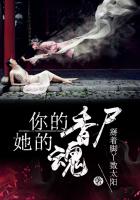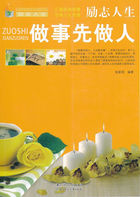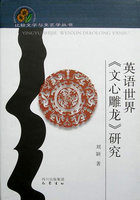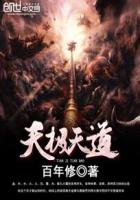This group of Hull-House artists have filled our little foyer with a series of charming playbills and by dint of painting their own scenery and making their own costumes have obtained beguiling results in stage setting. Sometimes all the artistic resources of the House unite in a Wagnerian combination; thus, the text of the "Troll's Holiday" was written by one resident, set to music by another; sung by the Music School, and placed upon the stage under the careful direction and training of the dramatic committee; and the little brown trolls could never have tumbled about so gracefully in their gleaming caves unless they had been taught in the gymnasium.
Some such synthesis takes place every year at the Hull-House annual exhibition, when an effort is made to bring together in a spirit of holiday the nine thousand people who come to the House every week during duller times. Curiously enough the central feature at the annual exhibition seems to be the brass band of the boys' club which apparently dominates the situation by sheer size and noise, but perhaps their fresh boyish enthusiasm expresses that which the older people take more soberly.
As the stage of our little theater had attempted to portray the heroes of many lands, so we planned one early spring seven years ago, to carry out a scheme of mural decoration upon the walls of the theater itself, which should portray those cosmopolitan heroes who have become great through identification with the common lot, in preference to the heroes of mere achievement. In addition to the group of artists living at Hull-House several others were in temporary residence, and they all threw themselves enthusiastically into the plan. The series began with Tolstoy plowing his field which was painted by an artist of the Glasgow school, and the next was of the young Lincoln pushing his flatboat down the Mississippi River at the moment he received his first impression of the "great iniquity." This was done by a promising young artist of Chicago, and the wall spaces nearest to the two selected heroes were quickly filled with their immortal sayings.
A spirited discussion thereupon ensued in regard to the heroes for the two remaining large wall spaces, when to the surprise of all of us the group of twenty-five residents who had lived in unbroken harmony for more than ten years, suddenly broke up into cults and even camps of hero worship. Each cult exhibited drawings of its own hero in his most heroic moment, and of course each drawing received enthusiastic backing from the neighborhood, each according to the nationality of the hero. Thus Phidias standing high on his scaffold as he finished the heroic head of Athene; the young David dreamily playing his harp as he tended his father's sheep at Bethlehem; St. Francis washing the feet of the leper; the young slave Patrick guiding his master through the bogs of Ireland, which he later rid of their dangers; the poet Hans Sachs cobbling shoes;
Jeanne d'Arc dropping her spindle in startled wonder before the heavenly visitants, naturally all obtained such enthusiastic following from our cosmopolitan neighborhood that it was certain to give offense if any two were selected. Then there was the cult of residents who wished to keep the series contemporaneous with the two heroes already painted, and they advocated William Morris at his loom, Walt Whitman tramping the open road, Pasteur in his laboratory, or Florence Nightingale seeking the wounded on the field of battle. But beyond the socialists, few of the neighbors had heard of William Morris, and the fame of Walt Whitman was still more apocryphal; Pasteur was considered merely a clever scientist without the romance which evokes popular affection and in the provisional drawing submitted for votes, gentle Florence Nightingale was said "to look more as if she were robbing the dead than succoring the wounded." The remark shows how high the feeling ran, and then, as something must be done quickly, we tried to unite upon strictly local heroes such as the famous fire marshal who had lived for many years in our neighborhood-- but why prolong this description which demonstrates once more that art, if not always the handmaid of religion, yet insists upon serving those deeper sentiments for which we unexpectedly find ourselves ready to fight.
When we were all fatigued and hopeless of compromise, we took refuge in a series of landscapes connected with our two heroes by a quotation from Wordsworth slightly distorted to meet our dire need, but still stating his impassioned belief in the efficacious spirit capable of companionship with man which resides in "particular spots." Certainly peace emanates from the particular folding of the hills in one of our treasured mural landscapes, yet occasionally when a guest with a bewildered air looks from one side of the theater to the other, we are forced to conclude that the connection is not convincing.
In spite of its stormy career this attempt at mural decoration connects itself quite naturally with the spirit of our earlier efforts to make Hull-House as beautiful as we could, which had in it a desire to embody in the outward aspect of the House something of the reminiscence and aspiration of the neighborhood life.
As the House enlarged for new needs and mellowed through slow-growing associations, we endeavored to fashion it from without, as it were, as well as from within. A tiny wall fountain modeled in classic pattern, for us penetrates into the world of the past, but for the Italian immigrant it may defy distance and barriers as he dimly responds to that typical beauty in which Italy has ever written its message, even as classic art knew no region of the gods which was not also sensuous, and as the art of Dante mysteriously blended the material and the spiritual.
Perhaps the early devotion of the Hull-House residents to the pre-Raphaelites recognized that they above all English speaking poets and painters reveal "the sense of the expressiveness of outward things" which is at once the glory and the limitation of the arts.















